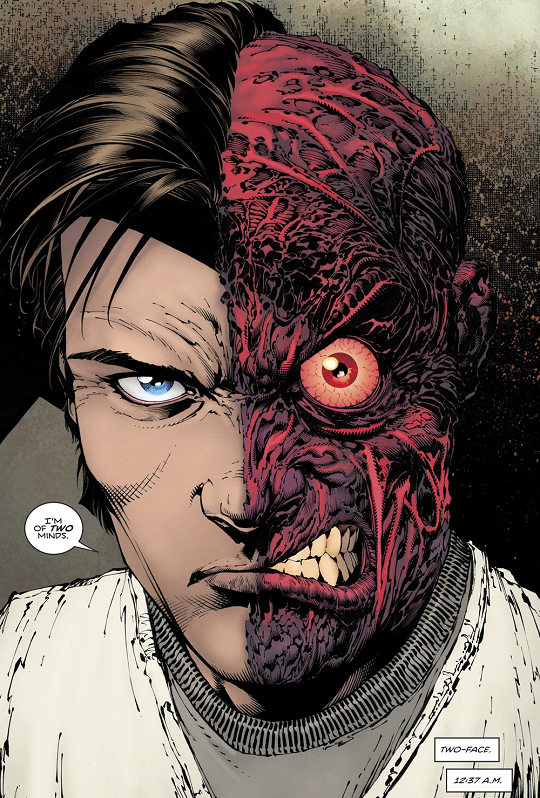Buzz-killing naysayer or astute assessor with impeccable standards?

I once worked for a client who would stop anyone who said ‘Just playing devil’s advocate…’
He would explain that he didn’t want anyone giving The Devil a place at the table.
This raises an interesting question: is it OK to point out what doesn’t work, or does that just make you a curmudgeonly Grinch who’s dragging the whole process down?
On one side, if something’s not working, surely it makes sense to course correct and improve it. If you’ve produced a piece of work it’s usually a good idea to ask someone what’s wrong with it so that you can fix it. Compliments tend to lead to complacency, after all, if something’s supposedly brilliant then there’s no need to put any more effort into it. But there’s always some detail you can make better, and sometimes a fresh perspective is what you need to find that wood that’s obscured by the trees.
A couple of years ago I was looped into a Facebook group that was crowdsourcing ideas to prevent gun crime in America. Lots of ideas poured forth, but few if any seemed to be driven by the need to actually change behaviour. Most were the kind of Cannes-winning bullshit that leaves the status quo exactly where it started. But when I pointed this out, correlating it with the group’s stated intention to make a real difference, I was shouted down for having a negative attitude.
And I sympathise. Having someone in the room who goes around strangling ideas to death isn’t helpful (although I didn’t shit on anything specific and instead just reminded the group of our supposed goal). I thought I was helpfully keeping things on track; some of the others just wanted to blast out thoughts and assess them later, otherwise known as the ‘there are no stupid ideas’ ethos. A safe space to regurgitate whatever you want is essential for people to bring up the kind of crap that can then spark a brilliant thought in someone else, and so on until gun crime is vanquished.
So which is right? Perhaps the best path is to be increasingly critical as the process continues, but even then you kind of need to start the Safe Place For Ostensibly Stupid Ideas at every new stage. If the director suggests using Cotton Eye Joe as the soundtrack for your deeply serious manifesto, you should all feel OK with the time it will take the sound engineer to sync it up.
Or should you? There’s only so much time in the studio and perhaps it should be spent as wisely as possible. Maybe you should laugh in his face and suggest Comfortably Numb instead.
A few years ago I replaced a Creative Director on a job. After a round of reviews had been completed the rest of the team were amazed that we’d only been going for three hours. They explained that the other CD had been taking the entire eight-hour day to assess the hell out of every single script in every single idea from every single team. I had quickly discarded what I thought was mediocre or limited in favour of the ideas that merited further attention. If you pursue everything to the nth degree you can’t give sufficient attention to the ideas most likely to succeed. I think it’s best to go wide and shallow to begin with, then drill deeper into the best stuff as the deadline approaches. Yes, that might result in some well-hidden greatness being discarded, but part of the job of being a CD is making decisions: they might be right; they might be wrong, but you can’t proceed without them.
If you’ve worked in advertising long enough, you’ll have witnessed plenty of occasions where people have made suggestions you thought were dreadful, only to see the room unanimously praise their excellence. Equally, you’ve probably seen ideas you thought were brilliant biting the dust for reasons that made no sense. Nobody’s ability to appraise work is perfect, so even if you get the best people taking the longest time to make the most complete judgement, there’s still no guarantee it’ll be better than flipping a coin.
And you could have the most welcoming and open environment for idea generation and people will still feel like they don’t want to speak for fear of looking stupid, or being unfairly assessed.
So it looks like we need a space to feel secure in making creative suggestions, however dumb they might appear, AND a simultaneous critical faculty that can assess the quality of such suggestions, killing them if required, but not in such a way that will make anyone feel inhibited about offering future ideas.
No one said this was going to be easy…
I agree with what you’re saying, except for referring to other people as ‘bitch’.
It’s a fine line, innit?